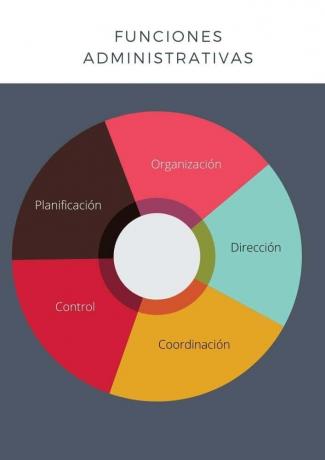The father of modern management, he developed the examples of 14 principles of Henry fayol, which are fundamental within the administration, where it explains the middle managers and the directional organization that allow making decisions and interacting with employees correctly.
In this article you will find:
Examples of Henry Fayol's 14 Management Principles

Advertisements
The investigations of the business administration theorist developed a universal business approach that led to the design of the examples of 14 principles of Henry Fayol, these principles are:
1. Division of work
It is suggested that the company has to be divided between people and departments, since the job classification allows it to increase efficiency, production and profitability.
Advertisements
- Example: The company chooses for each job the employees who are specialized, and who are experts in the area to perform.
2. Authority and responsibility
For a business to function, there must be a balance between responsibility and authority so that there is equality.
- Example: Each department has a manager specialized in the area, to enforce the activities and control the performance of the personnel under his command.
3. Discipline
It refers to proper conduct, obedience and respect for the main values, so that there is a good relationship between the workers and the authority.
Advertisements
- Example: The managerial positions in the different departments must be carried out by leaders capable of efficiently lead the work team, reward performance and sanction noncompliance labor.
4. Unity of command
It is about the need for a worker to receive orders and be accountable to the same command, in this way responsibility for errors is easily established.
- Example: Through the organization chart the chain of command of the company is established that goes from the general manager and is distributed to the departments commanded by the area managers.
5. Steering unit
According to this theory, activities that comprise the same objective have to be directed by a manager through established plans and processes.
Advertisements
- Example: Everything related to the worker must be handled by the Resources department Human, where the payments, vacations, reprimands, and schedules are directed under the guidelines of the business.
6. Respect for the general interest
Companies and employees have their own interests, however, these should not be above the general interest of the organization.
- Example: The business approach should be directed at all levels of the company.
7. Remuneration
If a company wants workers to perform better and be more efficient, it must offer good remuneration.
Advertisements
- Example: The remuneration must be balanced between the position and the activity carried out, considering the experience, the years of service, among others.
8. Hierarchy
In the company there must be a clear line of hierarchical authority, from the highest level to the lowest.
- Example: The business organization chart should reflect who is the direct manager of each area so that each employee is accountable for his work and respects his authority.
9. Centralization
It is the highest authority in the hierarchical area, however, sometimes it must delegate according to the size of the company for better operation.
- Example: The decision-making authority must maintain a balance in the company.
10. Order
It is a fundamental factor for companies at a physical and social level, therefore, it is important to maintain the order of resources and a good work environment.
- Example: Employees must have the resources that allow them to work properly and work in the position that is consistent with their capabilities.
11. Equity
It is the principle of greatest importance, since Fayol indicates that all workers must be treated equally so that they give their maximum performance to the company.
- Example: Managers must treat their employees fairly, to gain worker loyalty and productivity.
12. Stability
The continuous rotation damages the stability of the good functioning of the organization and creates insecurity in the employees.
- Example: Continuous job rotation is not recommended, to avoid lack of experience and job performance.
13. Initiative
Fayol emphasizes the initiative of the employees at the time of the execution of the activities, for this they must enjoy flexibility and be considerate when making a mistake.
- Example: Management must encourage workers to make their own plans, carry them out, and understand that unexpected errors can arise.
14. Esprit de corps
This principle is about teamwork, worker participation and collaboration, which improves business development and increases worker confidence.
- Example: When teamwork is encouraged, the contribution of the participants' knowledge can be achieved.
These 14 examples early Henry Fayol, are very useful tools for the proper administration and direction to be carried out, since that all have a human factor that, applied in current models, improves performance business.

